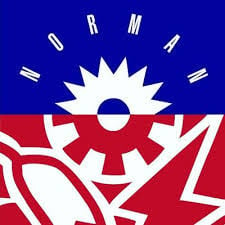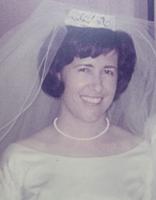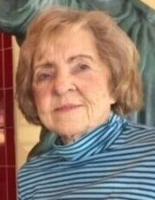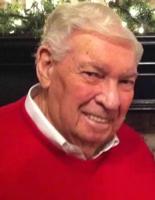Candidates for the even-numbered Norman City Council wards and the mayoral seat answered questions during The Transcript’s debate about issues facing each ward and the entire city Wednesday.
Incumbent Mayor Breea Clark, “Midway” Bob Thompson, Larry Heikkila and Dr. Nicole Kish sparred on issues facing Norman during Wednesday night’s forum. Candidate Alice Stephenson-Leuck was unable to attend.
Mayoral race:
Public safety
Both Kish and Heikkila supported incentives and pay raises for police and firefighters. Heikkila’s approach to public safety is to increase both departments’ personnel levels “to national standards,” he said.
Kish went on the offense against Clark when she said the mayor “defunded the police” at a time when crime soon after increased. Clark denied the department was defunded, said “crime is up everywhere” and praised the department’s reorganization to focus on community policing. Kish referred to the council’s June 2020 vote to reallocate $865,000 from the Norman Police Department’s budget increase for community projects and a city auditor.
Heikkila said the community policing unit was not staffed, though Clark said it is not yet staffed because it is still new. Her approach to public safety is crime prevention, and Clark said while raising pay sounds nice, it is “easier said than done.”
Thompson agreed that it was important to staff the department fully. He said he helped pass the Public Safety Sales Tax, which has funded public safety personnel and projects, but Clark countered that the sales tax fund is being subsidized by the general fund.
Homelessness
Clark said adopting a community refrigerator ordinance and expanding food services at the human service agency, Food and Shelter Inc. are just two ways her council has acted to assist the homeless. The city is also in talks with the state to purchase land to develop affordable housing and a permanent emergency shelter.
Thompson said his view on solving homelessness will demand local and state partnerships. Heikkila noted it would be important to target resources for those who can be helped immediately with housing plans for each unhoused person.
Kish pointed to a bill proposed by Sen. Rob Standridge, R-Norman, that would impose sanitary conditions on encampments. Many homeless do not want help, she said, according to her conversations with Cleveland County Sheriff Chris Amason. She also noted her endorsement from Gov. Kevin Stitt would mean support from the state “to get this city back on track.”
Clark said Standridge’s bill would do nothing to solve homelessness, but would increase it.
Norman forward & economic growth
All candidates supported Norman Forward, but Clark said she will support a “Norman Forward II” extension of the half-cent special sales tax to fund quality of life projects.
Heikkila said sports and entertainment should have been the first projects built in Norman Forward instead of new libraries, and that a path forward to sales tax growth is tourism.
Thompson said it would be important to fund remaining projects with “excellence” to instill confidence in the public if voters continue the tax.
Kish said voters won’t support more funding for Norman Forward — just as voters declined the 2020 general obligation bond — until trust has been restored in a new city council and new mayor. Clark blamed Unite Norman — Kish’s group that attempted a recall of multiple city councilors and the mayor in 2020 — for the failure of that bond, saying it “tore Norman apart.” Kish blamed the mayor for dividing Norman, and said Unite Norman “woke people up.”
The future of economic development lies in streamlining codes, Heikkila said, to ease doing business with the city.
Kish said the city should invest in business attraction incentives and business-friendly codes to overcome a bad reputation in the business community.
Kish criticized the council for its “treatment” of Costco, which chose to move to Moore. Clark rebutted that the council did not interact with “the Costco people.”
City records show the economic development advisory board called a special meeting in 2019 after city staff said the retailer was interested in Norman. The board recommended to council that negotiations should “move forward.” The lack of infrastructure at Interstate 35 and Indian Hills Road was a deterrent, but the city could complete improvements to the intersection in time for the store’s projected 2021 opening, minutes of the meeting indicated.
Clark wants to leverage federal dollars to work on business attraction and continue a “successful” partnership with the Norman Economic Development Coalition, she said.
Thompson said it would be important to balance businesses that boost sales tax growth while focusing on the uniqueness that small businesses bring to Norman and higher paying jobs.
Ward 2
Ward 2 Lauren Schueler faces challenger John Argo, who due to technical difficulties was unable to participate in Wednesday’s debate after multiple attempts to connect via Zoom were unsuccessful.
In her opening statement, Schueler said she places high value on civic engagement, restarting the land use plan and rethinking policies regarding how residents access the city with comments and concerns.
Schueler said stormwater infrastructure in Ward 2 is among the oldest in the city, and the update and maintenance of that is a critical issue. She said supporting the business community through the pandemic and the redevelopment of Lindsey Street are also of utmost importance. Schueler considers protection of the tree canopy and wants to be sure companies are intentional and thoughtful as they trim back trees, she said.
When asked about traffic flow near several Norman schools in the ward, Schueler said speeding is a concern. She proposed speed limit signals with flashing lights. As for the traffic flow, Schueler said increasing public awareness of routes could increase safety during drop off and pickup periods.
Schueler said development around Highway 9 was recently met with residential pushback, specifically because of the office park planned near 24th Avenue. She said it’s best to maintain the area as a thoroughfare rather than an office park.
Schueler said power lines could be buried in conjunction with other infrastructure upgrades to save money.
With additional federal support on the way, Schueler said there should be enough for upgrades to stormwater. She called Merkle and Bishop creeks “integral parts of the watershed” that haven’t been properly maintained.
On the topic of public safety, Schueler said a mobile crisis response team in coordination with the continuum of care could help alleviate calls to Norman police and fire. She added that funds should be reallocated to help strengthen public safety.
Schueler said after the Homebase study on homelessness, the city is well positioned to rethink what needs to be done to get more section 8 housing and a low barrier 24-hour shelter.
Schueler said she wants Norman residents to “feel like their voices are heard.”
Ward 4
Ward 4’s Lee Hall will not run for another term, leaving Teresa Borum, Helen Grant, Doane Harrison and Gale Hobson to vie for the seat. All four candidates participated in the debate Wednesday.
Borum said fiscal responsibility, adequately funding public safety and homelessness are the most important issues in the ward.
Grant said affordable housing and mental health crisis response in addition to stormwater development were among the most pressing issues.
Harrison said the lack of economic growth is the largest problem facing the ward, which results in understaffed emergency services and a growing homeless population.
Hobson said further addressing homelessness is of high priority, followed by balancing police care with behavioral health issues and infrastructure issues like the ones she sees living on Flood Avenue.
Grant said there is adequate funding for public safety through a public safety sales tax. Grant and Borum agreed with Harrison that public safety is an economic development issue.
Borum said if city code were more business friendly, that would help with other issues such as affordable housing.
Harrison said Norman has a problem getting infrastructure bills passed because the city’s residents have little trust in the council to spend funds wisely. He mentioned infrastructure problems like bridges that buses can’t drive over and down street lights around town. He said his experience as a CPA makes him qualified to properly distribute funds where needed.
Hobson said as a psychologist with experience running a private practice, she knows how to deal with business and mental health issues. She said with the help of Norman police and a continuum of care program, up to 40% of those without homes could get help.
Harrison expressed concern for the homeless facility proposed for Main Street, and said one ward shouldn’t take on the entire responsibility of helping those without homes.
Grant said there’s no emergency shelter option and oftentimes, those needing services have no transportation. She said it’s important to ensure people have reliable transportation and access to services and vouchers.
Borum said intent and community involvement are needed to further address complicated topics such as homelessness. She said putting a shelter by the new senior wellness center and another near restaurants is not taking everyone into consideration.
On the topic of Center City Form Based Code, Harrison said he would put a focus on trusting engineers and identifying “what the bottlenecks are.”
Hobson said the NOUN Hotel approval was an unnecessarily lengthy process. She believes there’s a balance between “smart and logical development,” and “making it doable.”
Grant said pattern zoning is a concept that could bring efficiency and answers to previously unresolved issues with CCFB code.
Ward 6
Incumbent for Ward 6 Elizabeth Foreman and her opponent Alex Torvi shared their top three issues facing the ward Wednesday night.
Foreman said homelessness, quality of life issues — like sidewalks, often missing in the ward — and the future ward boundary are the top issues constituents raise to her. Torvi said police funding was the highest concern, followed by jobs and economic security, and homelessness.
Foreman supported a housing-first approach to assisting the unhoused and the city’s newest plans to purchase state-owned land near Food and Shelter to build affordable housing. Torvi was against a permanent homeless shelter after he said voters declined to fund it with a proposed general obligation bond in 2020, though Foreman countered that she believed voters were against raising property taxes, not a shelter.
The best agencies to address homelessness are nonprofits, Torvi said, while the city could act as a facilitator. Foreman agreed the city should not be overtasked with solving the issue that affects the entire county.
As a local business owner, Torvi said he would work to end the hostile relationship between businesses and the council. Foreman said she encourages businesses to develop in the ward, which is heavily residential.
Public safety was a shared concern. Torvi said there are not enough police officers, while Foreman countered that she would like to see a study on the department’s staffing levels and revenue needs.
No study should be necessary, Torvi rebutted, because “we’ve studied things to death,” he said.
“We are at 147 officers and we should be at 189,” he said, citing Norman Police data.
Ward 8
Candidate Scott Dixon and Ward 8 Matt Peacock agreed about several issues, including support for Norman Forward projects, uniting Norman for the common good and the city’s plans to alleviate homelessness.
The two differed on the University North Park tax increment finance district, which saw the completion of retail and dining businesses with infrastructure paid for with city sales tax dollars until 2019, when the agreement between the city and developers ended.
Peacock said residents did not see what was promised, while Dixon sang the TIF district’s praises as a sales tax revenue engine for the city. He agreed the development evolved over time, but cited an economic decline in 2008 and changing shopping trends as reasons for those changes.
Tax districts funded by sales tax are not reliable, said Peacock, who noted his preference for tax districts that rely on ad valorem tax that does not fluctuate.
Dixon’s top three issues facing the ward include police funding, homelessness and quality jobs, while Peacock said uniting the city, homelessness and Norman Forward projects were his main issues.
Peacock supports a housing-first approach to homelessness and a 24/7 permanent shelter where the unhoused can be served during the day, away from the doorsteps of businesses. Dixon said county and state partners need to “step up” to help, in particular to address mental health needs for the unhoused. He agreed that housing people as quickly as possible should be a priority.
Both candidates said the Interstate 35 and Indian Hills interchange is dangerous, but as it’s under the control of the Oklahoma Department of Transportation, negotiations are necessary to move forward.
Peacock expressed an interest in small business development along the interstate corridor, but also said some green space could be used for industrial use. Dixon was open to a variety of development, but emphasized the need to generate “any kind of sales tax,” with a focus on “first class” attractions.

















Commented
Sorry, there are no recent results for popular commented articles.